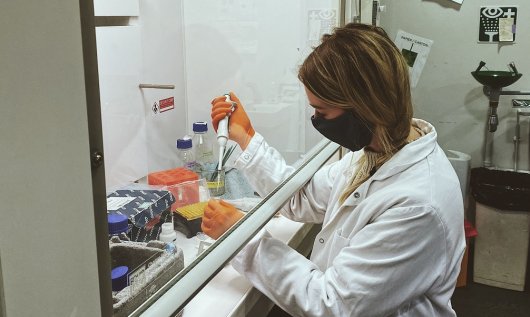PhD project
Project 12 The role of microbiota in host resistance against bacterial and fungal pathogens in wax moths (DK)
Despite the growing body of information regarding microbial interactions in insects, there remains a key question that has not yet been addressed: what is the role of the gut microbiota in host resistance to pathogens in insects? Currently, it is unclear to what extent the gut microbiota contributes to- or decreases host resistance to pathogens; and if there are some indigenous isolates of the microbiota that may improve the immune response to pathogens.
Conflicting opinions persist on the role of the gut microbiota in resistance to pathogens in insects. Nevertheless, it can be described as a “hidden” player due to its influence on the insects overall health and abilities. Therefore, further research into the role of the microbiota in host resistance and immunity from pathogens is required to grow expertise for maintaining insect health. Galleria mellonella (Lepidoptera: Pyralidae) larvae is chosen as the model organism for this study as the innate immune system has been widely studied for its response to both entomopahogens and human pathogens. A system of axenic rearing has also been established for this species. Insect pathogens generally have two routes of horizontal infection, oral via the gut and topical via the exoskeleton. By utilising pathogenic bacteria and fungi, the role of the gut microbiota can be assessed by both routes of infection. My research will observe several responses of the humoral and cellular immunity in both axenic* and conventionally* reared G. mellonella larvae, as well as characterise the microbiota during pathogen infection in single and co-infections from Bacillus thuringiensis (bacteria) and Metarhizium anisopliae (fungi). There will also be an assessment of important life history traits to determine trade-offs corresponding to the presence or absence of the gut microbiota when challenged by a pathogen. It is also our hypothesis that there are isolates of bacteria within the midgut that aids the immune response to help G. mellonella fight bacterial infection and mycoses. Understanding how and to what extent the immune response is mediated by the microbiota in single and co-infections will allow the potential for the development of probiotics and overall maintenance of insect health. The research will be conducted at INRAe in Jouy-en-Josas, France; and in the Department of Plant and Environmental Sciences at the University of Copenhagen, Denmark.
*axenic - larvae reared in sterile conditions resulting in an absence of microbiota
*conventional - larvae reared in normal conditions resulting in a presence of microbiota

